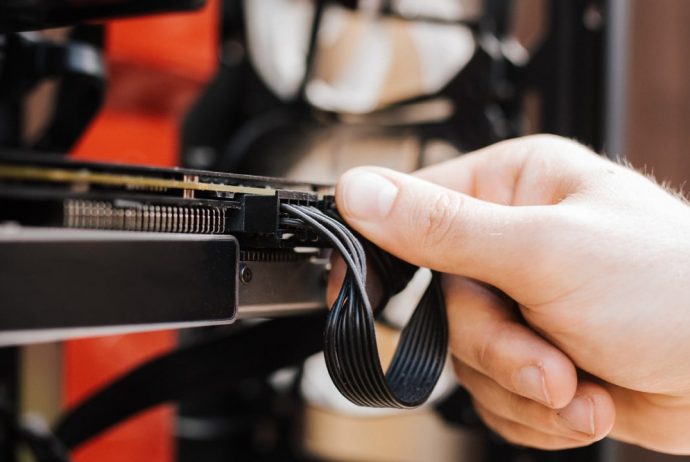Computers have become an essential part of our daily lives. From work to entertainment, we rely on them for various tasks. When it comes to high-performance computers, they are even more critical, as they are designed to handle demanding applications and processes.
However, with great power comes great responsibility. To maintain the performance of your high-performance computer, you need to take proper care of it. In this blog post, we will discuss various practices that you can adopt to keep your computer running smoothly.
Regular Maintenance Practices
The first step in maintaining a high-performance computer is regular maintenance. By performing routine checks and cleaning, you can prevent potential issues from arising.
Cleaning
Dust and debris can accumulate inside your computer over time, leading to overheating and other problems. Therefore, it’s crucial to keep your computer components clean regularly. You can use compressed air or a soft cloth to remove dust from the fans, vents, and other components safely.
Software Updates
Software updates are essential for keeping your operating system and applications up-to-date with the latest security patches and bug fixes. They also improve overall performance by optimizing software algorithms and routines.
Make sure that you enable automatic updates for both your operating system and applications so that you don’t miss any critical updates.
Virus Scans
Malware and viruses can cause significant damage to your computer’s performance by stealing data or corrupting files. Therefore, it’s crucial to install antivirus software on your high-performance computer and perform regular scans for malware.
Hardware Maintenance Practices
Hardware maintenance practices involve taking care of the physical components of your computer.
Temperature Control
High-performance computers generate a lot of heat due to their powerful components. Overheating can cause permanent damage to these components if not addressed promptly.
To avoid overheating, make sure that your computer has adequate ventilation by placing it in a well-ventilated area or using cooling pads or fans. You should also monitor the temperature levels using software tools like SpeedFan or HWMonitor regularly.
Upgrades
Upgrading hardware components such as RAM or graphics cards can significantly improve the performance of your high-performance computer. However, before upgrading any component, ensure that it’s compatible with your existing hardware configuration.
You should also follow proper installation procedures when upgrading hardware components to avoid damaging them or other parts of the computer.
Power Supply Maintenance
The power supply unit (PSU) is responsible for providing power to all components of your high-performance computer. A faulty PSU can cause random shutdowns or damage other hardware components due to voltage fluctuations.
Therefore, make sure that you use a high-quality PSU with adequate wattage ratings for your specific needs. You should also check the PSU fan regularly for dust buildup or signs of wear and tear.
Data Management
Data management involves maintaining backups and freeing up space on your hard drive for optimal performance.
Backups
Regular backups are crucial in case of data loss due to hardware failure or malware attacks. You should create multiple backups using different methods such as cloud storage services like Google Drive or Dropbox or external hard drives.
Ensure that you back up essential files frequently so that you don’t lose any critical data.
Disk Cleanup
Over time, temporary files and unnecessary programs can accumulate on your hard drive causing decreased overall performance.
Disk cleanup tools like Windows Disk Cleanup utility help in identifying these files automatically allowing you free up space on hard drives quickly.
Troubleshooting Common Issues
Even after following all the maintenance practices mentioned above issues may still arise which require troubleshooting efforts.
Some common issues include:
- Slow Performance: This could be due to inadequate RAM capacity or outdated drivers
- Blue Screen Errors: These errors occur when there is a problem with the system’s kernel
- Hardware Failures: This could be either due to damaged physical hardware component/s
You should troubleshoot these issues promptly by seeking professional assistance if necessary.
Conclusion:
Maintaining a high-performance computer requires effort but pays off in terms of longevity & optimal performance in return. By following regular maintenance practices such as cleaning & updating software along with taking care of physical aspects including temperature control & upgrades one can prolong its lifespan as well as optimize its functionality.
Additionally backing up data regularly & disk cleanup helps keep storage usage optimized, Troubleshooting common issues promptly ensures quick resolution before escalating into major problems.
So remember folks, proper maintenance = prolonged life + optimal functioning!

